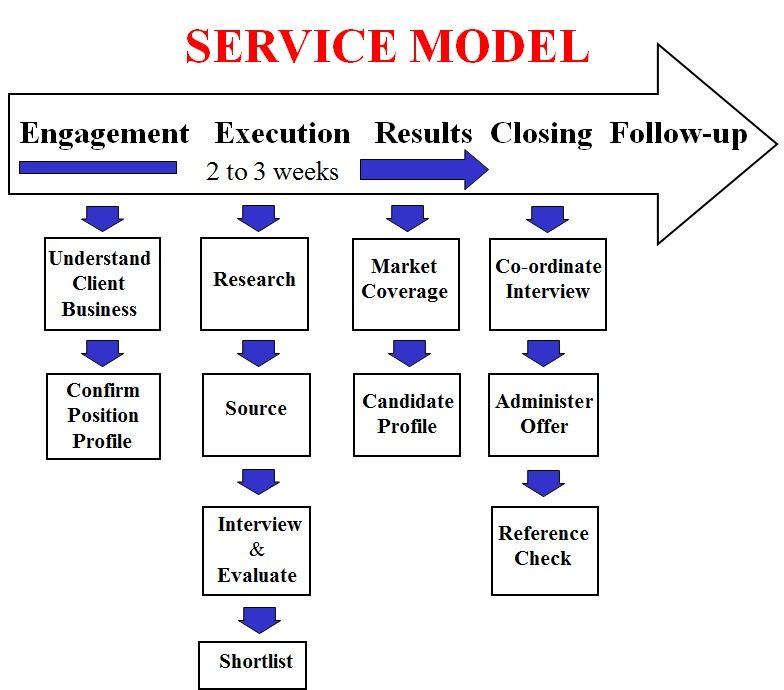The quality of an interview is the interviewer's responsibility
Typically, the interviewer will set the tone of the interview. Though an interviewee may want to influence the tone of the interview, that is quite unlikely as the interviewee would not want to come across as disrespectful or disdainful.
The interviewer’s role is to ensure that there is an air of mutual respect in an interview, or the interview would not be successful or effective. The interviewer should set the tone of the interview and the objective of the interview should be to recruit top talent.


The objective of an interview is to recruit top talent.
The company is trying to attract top talent. Ideally, the first interview should be with the hiring manager. Do not forget that the first impression counts a lot. The interviewee is at the interview to know your company, the department he is going to work in, and the superior that he is going to work for. He is at the interview to discuss his experience and the job scope of this new potential job offer. The first interview should not be for the HR to do the screening, but rather for the hiring manager to have a detail and meaningful discussion about the job scope, career advancement opportunities, the candidate’s experience and aspirations, the fit between the candidate and the department.
The interview should be a meeting of mutual respect: a challenging and useful discussion of professionals.
As the interviewer, your objective should be making the interview a meeting of mutual respect: a challenging and useful discussion of professionals. As you are trying to recruit top talent, the top talent would be assessing the organization and the superior that he is going to work for. He is not going to join if he is uncomfortable with his interview experience.
The interviewee is at the interview with his own objective as well. He is there to assess if your organization is ‘attractive’ to him and what he would be able to ‘gain’ by working for you. It would be wise to treat him like you would treat a prospective customer. Show him why you are different from your competitors, why he should join you instead of your competitors. Show him that you are serious about him. If possible, work out a simple agenda. Tell the interviewee that he is not at the interview for an interrogation session. That will allow you to demonstrate to the interviewee the positive difference between you and your competitors and give the interviewee a certain good feel about your organization.
Do not be presumptuous.

In most interviews, the interviewers hold the upper hand. The usual mistake they make is to start ‘interrogating’ the interviewees too soon. The interviewer should be sincere in wanting to know the interviewee more; like what is he looking for in his next job, why he applies for your position, how he thinks he is going to add value to the position and what makes him choose your organization.
The interviewer should also share with the interviewees his (interviewer’s) goals and objectives, the profile of the person he is looking for, his background, his management style and what he is looking for in a candidate. In this way, the interviewee would be able to decide if he would be likely to fit into the working environment, for a long time to come.
State your business clearly.
The interviewer is the host and should take the lead. Lay your cards on the table. What is your company’s mission? What is its long-term goal? What role does your department play in the organization? What are some of the immediate challenges of the department? Why are you recruiting? Why are you interested in the interviewee?
After that, let the interviewee has his say. An interview has to be a 2-way communication to be effective. You want to ‘market’ your vacancy that is available as well as to learn more about the interviewee. Respect the interviewee. Pay full attention to what he got to say. Learn as much about him during the interview. If you have questions, wait for him to finish and ask him politely. Questions should be pertaining to his experience and how he feels he would be able to fit in successfully. Ask about his concerns, if any, about the vacancy. Everyone likes to work for an understanding, reasonable, caring and polite superior.

In the next part to this topic, we talk about why the interviewer needs to be prepared and be knowledgeable. Do come back soon.
Do you have any comments about this article? We appreciate your comments and feedback, which are crucial for us to improve.
Thanks in advance.
Cheers,
The Singapore Headhunter

The company is trying to attract top talent. Ideally, the first interview should be with the hiring manager. Do not forget that the first impression counts a lot. The interviewee is at the interview to know your company, the department he is going to work in, and the superior that he is going to work for. He is at the interview to discuss his experience and the job scope of this new potential job offer. The first interview should not be for the HR to do the screening, but rather for the hiring manager to have a detail and meaningful discussion about the job scope, career advancement opportunities, the candidate’s experience and aspirations, the fit between the candidate and the department.
The interview should be a meeting of mutual respect: a challenging and useful discussion of professionals.
As the interviewer, your objective should be making the interview a meeting of mutual respect: a challenging and useful discussion of professionals. As you are trying to recruit top talent, the top talent would be assessing the organization and the superior that he is going to work for. He is not going to join if he is uncomfortable with his interview experience.
The interviewee is at the interview with his own objective as well. He is there to assess if your organization is ‘attractive’ to him and what he would be able to ‘gain’ by working for you. It would be wise to treat him like you would treat a prospective customer. Show him why you are different from your competitors, why he should join you instead of your competitors. Show him that you are serious about him. If possible, work out a simple agenda. Tell the interviewee that he is not at the interview for an interrogation session. That will allow you to demonstrate to the interviewee the positive difference between you and your competitors and give the interviewee a certain good feel about your organization.
Do not be presumptuous.

In most interviews, the interviewers hold the upper hand. The usual mistake they make is to start ‘interrogating’ the interviewees too soon. The interviewer should be sincere in wanting to know the interviewee more; like what is he looking for in his next job, why he applies for your position, how he thinks he is going to add value to the position and what makes him choose your organization.
The interviewer should also share with the interviewees his (interviewer’s) goals and objectives, the profile of the person he is looking for, his background, his management style and what he is looking for in a candidate. In this way, the interviewee would be able to decide if he would be likely to fit into the working environment, for a long time to come.
State your business clearly.
The interviewer is the host and should take the lead. Lay your cards on the table. What is your company’s mission? What is its long-term goal? What role does your department play in the organization? What are some of the immediate challenges of the department? Why are you recruiting? Why are you interested in the interviewee?
After that, let the interviewee has his say. An interview has to be a 2-way communication to be effective. You want to ‘market’ your vacancy that is available as well as to learn more about the interviewee. Respect the interviewee. Pay full attention to what he got to say. Learn as much about him during the interview. If you have questions, wait for him to finish and ask him politely. Questions should be pertaining to his experience and how he feels he would be able to fit in successfully. Ask about his concerns, if any, about the vacancy. Everyone likes to work for an understanding, reasonable, caring and polite superior.

In the next part to this topic, we talk about why the interviewer needs to be prepared and be knowledgeable. Do come back soon.
Do you have any comments about this article? We appreciate your comments and feedback, which are crucial for us to improve.
Thanks in advance.
Cheers,
The Singapore Headhunter






No comments:
Post a Comment